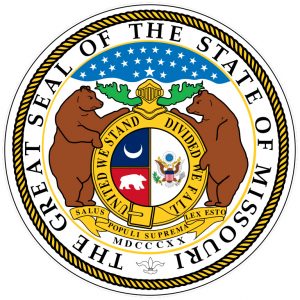 On March 17, 2020, the Missouri Supreme Court held that the use tax definition of “sale” cannot be applied to sales tax cases, turning more than two decades of precedent on its head. In DI Supply I, LLC v. Director of Revenue, DI Supply sold hotel room furnishings to its parent, Drury Hotels Company (DHC), which operates hotels. The issue before the court was whether DI Supply’s sales to DHC were nontaxable sales for resale. DI Supply argued the sales were for resale because DHC transferred the right to use the hotel room furnishings to its guests and included the cost of such items in the nightly room rate.
On March 17, 2020, the Missouri Supreme Court held that the use tax definition of “sale” cannot be applied to sales tax cases, turning more than two decades of precedent on its head. In DI Supply I, LLC v. Director of Revenue, DI Supply sold hotel room furnishings to its parent, Drury Hotels Company (DHC), which operates hotels. The issue before the court was whether DI Supply’s sales to DHC were nontaxable sales for resale. DI Supply argued the sales were for resale because DHC transferred the right to use the hotel room furnishings to its guests and included the cost of such items in the nightly room rate.
The concept of “resale” exists separately in the definitional statutes of both the Missouri sales tax and use tax. Under the sales tax, the sale for resale exclusion is derived from the definition of “sale at retail,” which means any transfer “of the ownership of, or title to, tangible personal property . . . not for resale.” Under the use tax, tangible personal property held “for resale in the regular course of business” is exempt. A transaction qualifies as a “resale” for use tax purposes if it satisfies the use tax definition of “sale,” which requires a transfer of “title or ownership . . . or the right to use, store or consume” tangible personal property.
Notwithstanding these textual differences, since at least 1994 the Missouri Supreme Court applied the broader use tax definition of “sale” to interpret the term “resale” for sales tax purposes and said the use tax exemption and sales tax exclusion must have identical meaning and application. Consequently, taxpayers relied on the court’s body of caselaw in taking the position that a sale of tangible personal property to a buyer who intends to transfer the right to use, but not title to or ownership of, such property to its customer qualifies for the sales tax resale exclusion.
In a seeming failure to adhere to the principle of stare decisis, the Missouri Supreme Court held that DI Supply’s sales of room furnishings to DHC did not qualify for the sales tax resale exclusion because the hotels did not transfer ownership of or title to the furnishings to hotel guests. In so holding, the court explicitly repudiated its prior practice of applying use tax definitions to sales tax cases, observing that the sales tax and use tax statutes on their face have different requirements. The majority, in a mea culpa of sorts, acknowledged that the court had unintentionally created confusion for taxpayers but rejected the dissent’s contention that the court was bound by stare decisis to follow its prior decisions.
The DI Supply I decision will likely impact a broad swath of Missouri taxpayers who relied on the Missouri Supreme Court’s now-rejected practice of applying use tax definitions for sales tax purposes. As the court hinted in a footnote, the differing definitions of “sale at retail” and “sale” in the sales and use tax statutes may be the subject of a future Commerce Clause challenge. DI Supply I, LLC v. Director of Revenue, No. SC97932 (Mo. Mar. 17, 2020) (en banc).
 SeeSALT Blog
SeeSALT Blog

